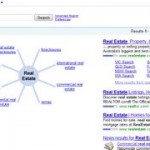 The following is a guest post from Holly Jahangiri, a professional writer with over twenty years’ experience in technical writing, freelancing, fiction, poetry, and editing. She blogs at It’s All a Matter of Perspective and as a “matter of perspective” shares with us her point of view, on the ever increasing amount of splogs that are created everyday. Making money online is probably one of the most coveted niche in the blogosphere and doing it right is what its all about. Without further ado, here is an opinion of someone who is not blogging about money, SEO, get rich quick, and all that. Over to you Holly.
The following is a guest post from Holly Jahangiri, a professional writer with over twenty years’ experience in technical writing, freelancing, fiction, poetry, and editing. She blogs at It’s All a Matter of Perspective and as a “matter of perspective” shares with us her point of view, on the ever increasing amount of splogs that are created everyday. Making money online is probably one of the most coveted niche in the blogosphere and doing it right is what its all about. Without further ado, here is an opinion of someone who is not blogging about money, SEO, get rich quick, and all that. Over to you Holly.
Search Google for the words make money online and you will get 183,000,000 results. You could spend a lifetime sifting through all that to find a useful gem or two. It seems to me it would be easier, and more cost effective, to get or keep a real job. Still more of us would be happy little shut-ins, working in our PJs and bunny slippers, given half a chance. The terms work from home yield 333,000,000 results. Even if you narrow it to the exact phrase, “work from home,” you get 18,900,000 hits. Surprisingly, “get rich quick” only turns up 1,420,000. Maybe there is, finally, a growing awareness that money doesn’t grow on trees – at least not overnight. We still expect it to be easy; “easy money” garnered 3,770,000 hits.
Is it any wonder that the truly lazy, or truly desperate, are willing to take shortcuts, sacrificing any long-term business credibility in the name of short-term gains? Is it any wonder that spam blogs, or “splogs” and “scraper sites,” exist? There must be some return on the investment of time and effort, but surely no one clicks ads on a site that looks like gobbledygook or contains not one iota of original content, and surely no one buys anything from them? On other hand, why are there so many of these things proliferating like bunnies, if they’re not profitable? I’ve always wanted to ask the person behind one of these sites, “Is that really working for you?” Every time I inadvertently click a link leading to a splog, I back out more quickly than I came – and wouldn’t dream of clicking the adds or links on the page.
So how does this work? Jonathan Bailey of PlagiarismToday.com sat down for a chat with a splogger, and explains how it works in his post, Behind Splogging: Why Sploggers Splog. “Most sploggers have no desire to attract human readers to their plagiarized sites. They’re quick, crude, low quality and, almost always, illegal. Visitors to them will not likely click any ads placed upon them nor follow any links provided.” In short, they’re not meant for human readers at all. They’re strictly gaming the system. “The desired end result is that Yahoo searchers will be directed to the junk domains where they will then click on the Google Adsense ads. This arrangement is not only very profitable for the splogger, since they get a sizeable chunk of the revenue from each ad click, but is very beneficial to Google as they are getting money directly from Yahoo’s visitors.” It’s unethical.
Unfortunately, they do suck in human readers and destroy the credibility of many legitimate online businesses. Would you buy anything from an unknown entity? With so many scam artists out there, it becomes harder and harder to trust anyone on the Web.
Only slightly better are the myriad “pay-per-post” sites. Sites that promise to show you how to “Monetize your blog!” (1,090,000 hits) and “Make money blogging!” (768,000 hits) tempt Internet users who like to write. I see too many people willing to turn their blogs into an ugly wasteland of billboards and meaningless ad copy, thinking that’s the road to riches. It’s not. The only way paid posts are likely to make you rich is if you are an expert in your field, set up an attractive and useful niche blog, and have something truly original to ad to the conversation. You can’t succeed by trying to imitate the splogs – remember, those are NOT for human readers in the first place, and you’re missing the half of the equation that makes them “successful.” It’s one thing to write the occasional paid review or even paid ad copy, if you don’t mind letting others use your blog that way – but when you write a post about a product or service with which you clearly have no personal experience, it damages your credibility. I’ll write for pay – that’s how I earn my living. But I won’t sell my soul to do it. I won’t write endorsements of products and services I haven’t used.
One of the attractions of the World Wide Web is social networking. It is important to form relationships and to be trustworthy.
So does that mean that anyone who wants to work from home, make money online, and have an easier time of it than they do at their day job is lazy, dishonest, and unethical? Certainly not. But there are better ways of making money online and off. The bad news is, few of them are quick or easy, and you won’t become a millionaire overnight. But treat it as a real business – take the time to do it right – and you might just get a good night’s sleep, keep your personal reputation intact, and earn the kind of trust that will help your small business get off the ground and thrive. Eventually, you might really be able to work from home and earn a modest income or a little extra spending money.
What do you think? Do you share the same opinion or do have a version of your own. Please share it here with us.








